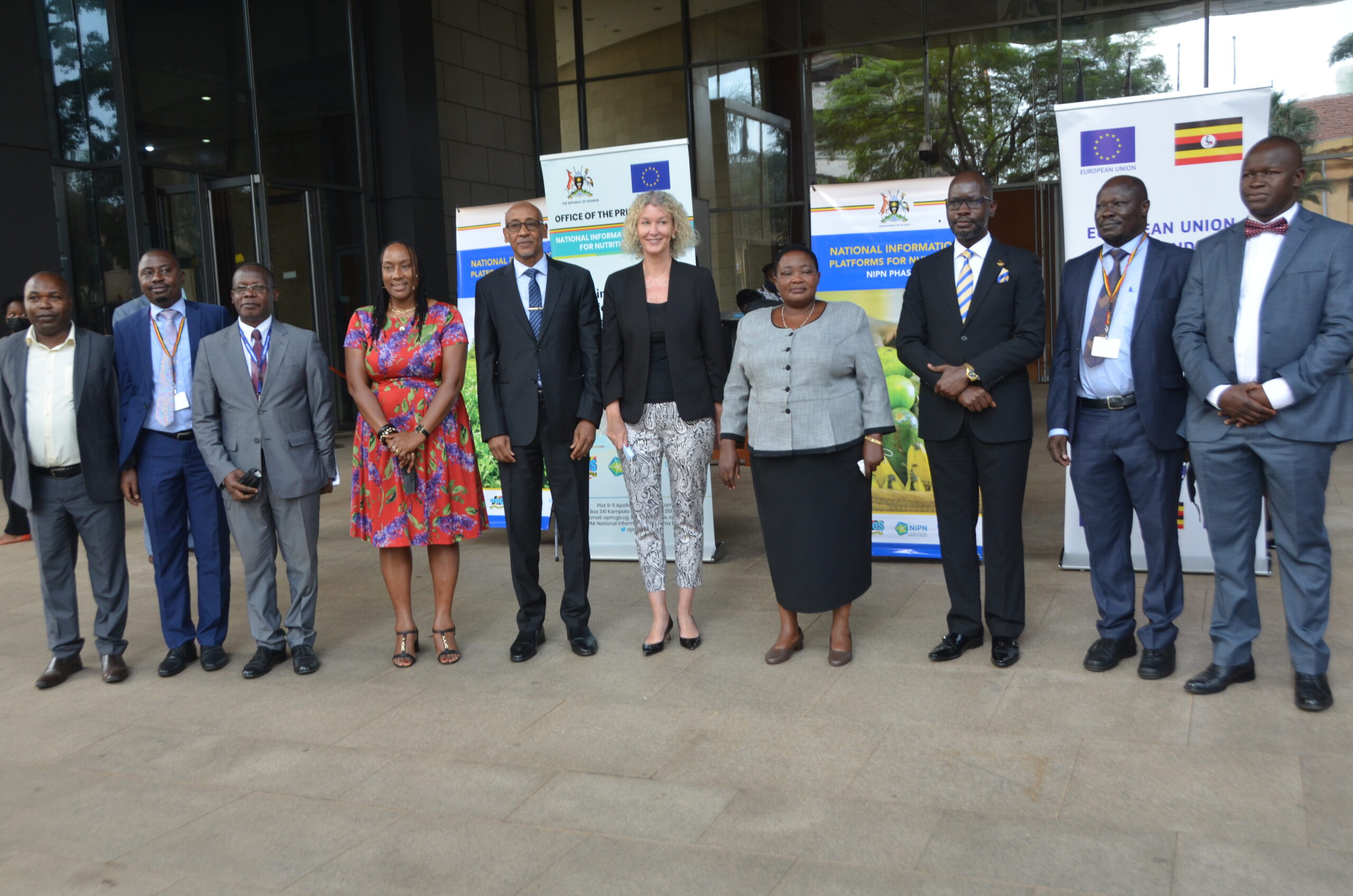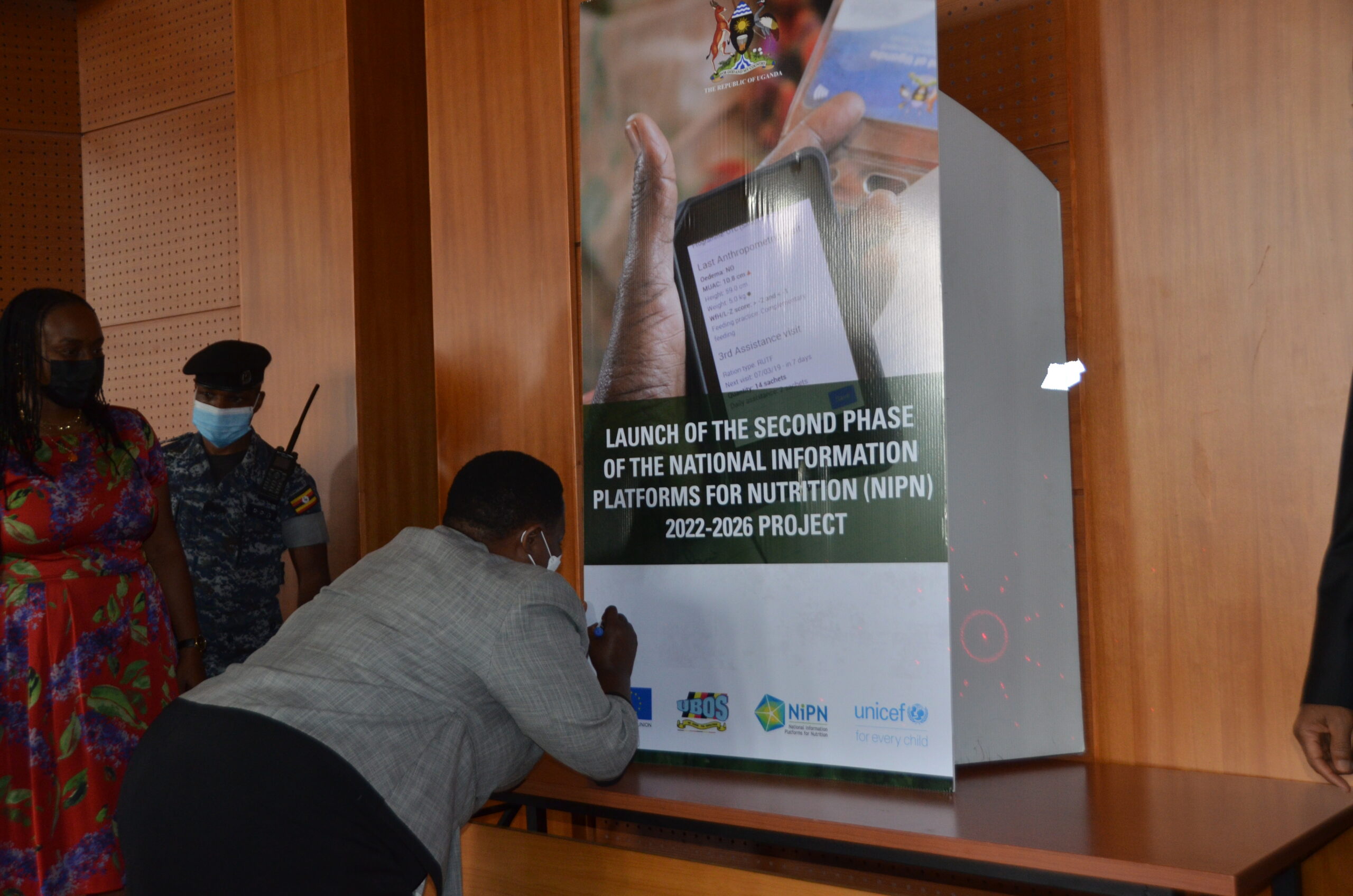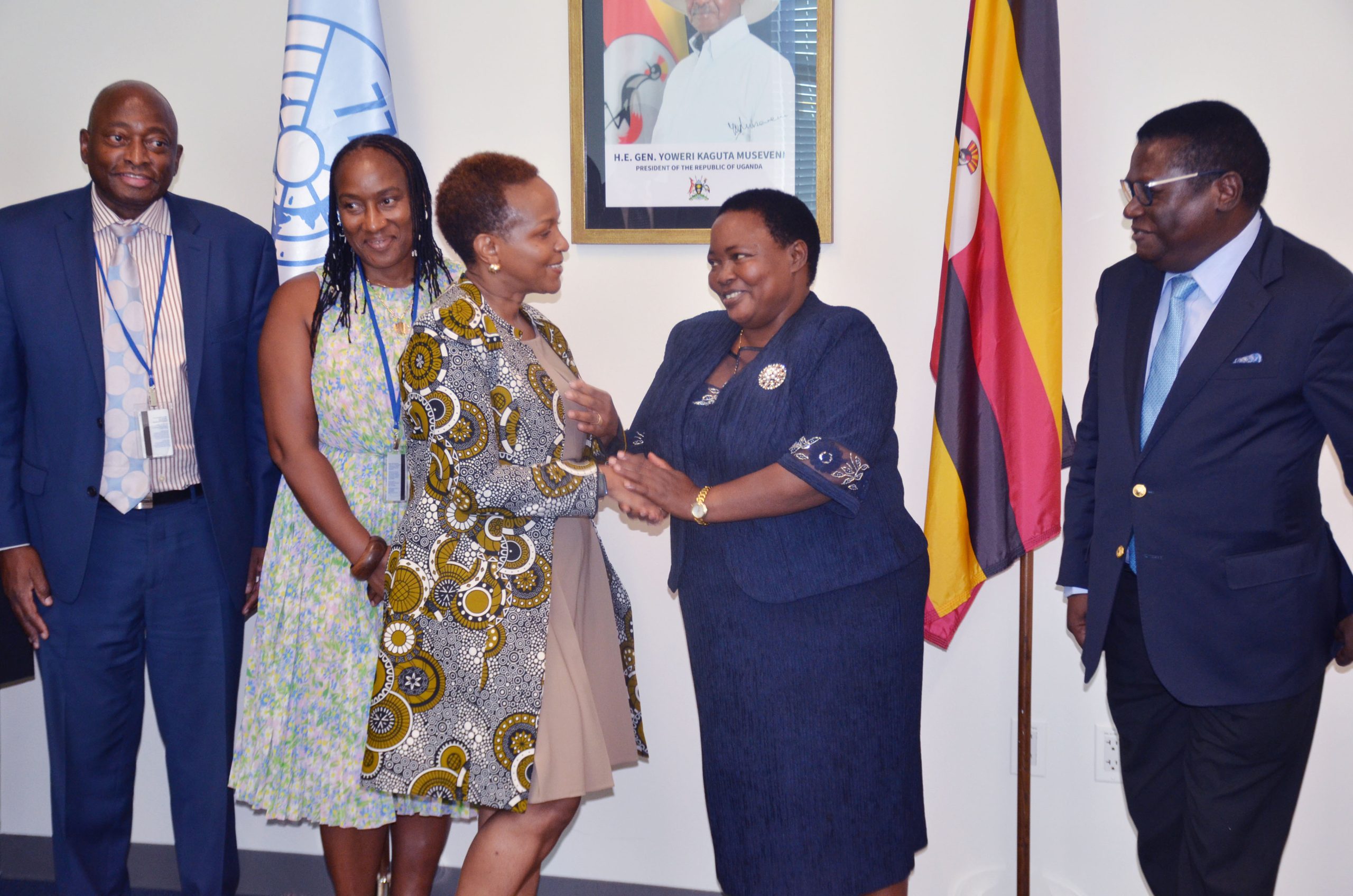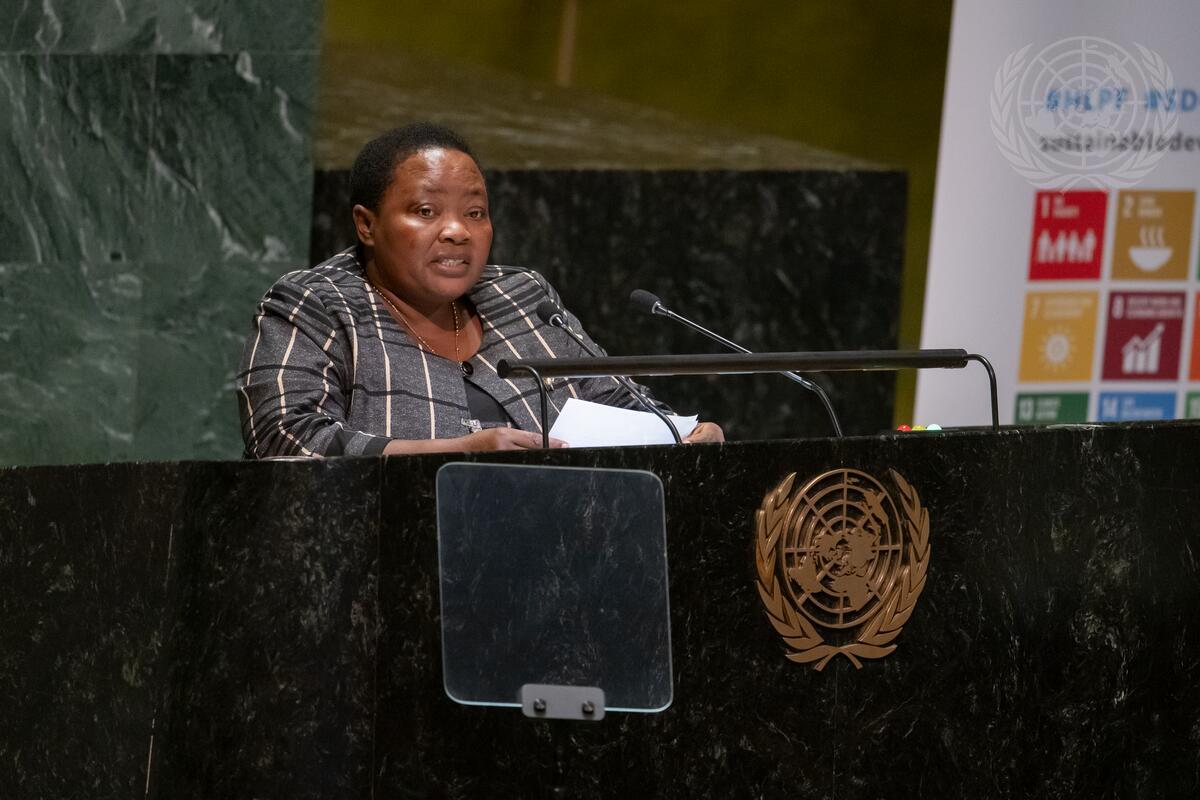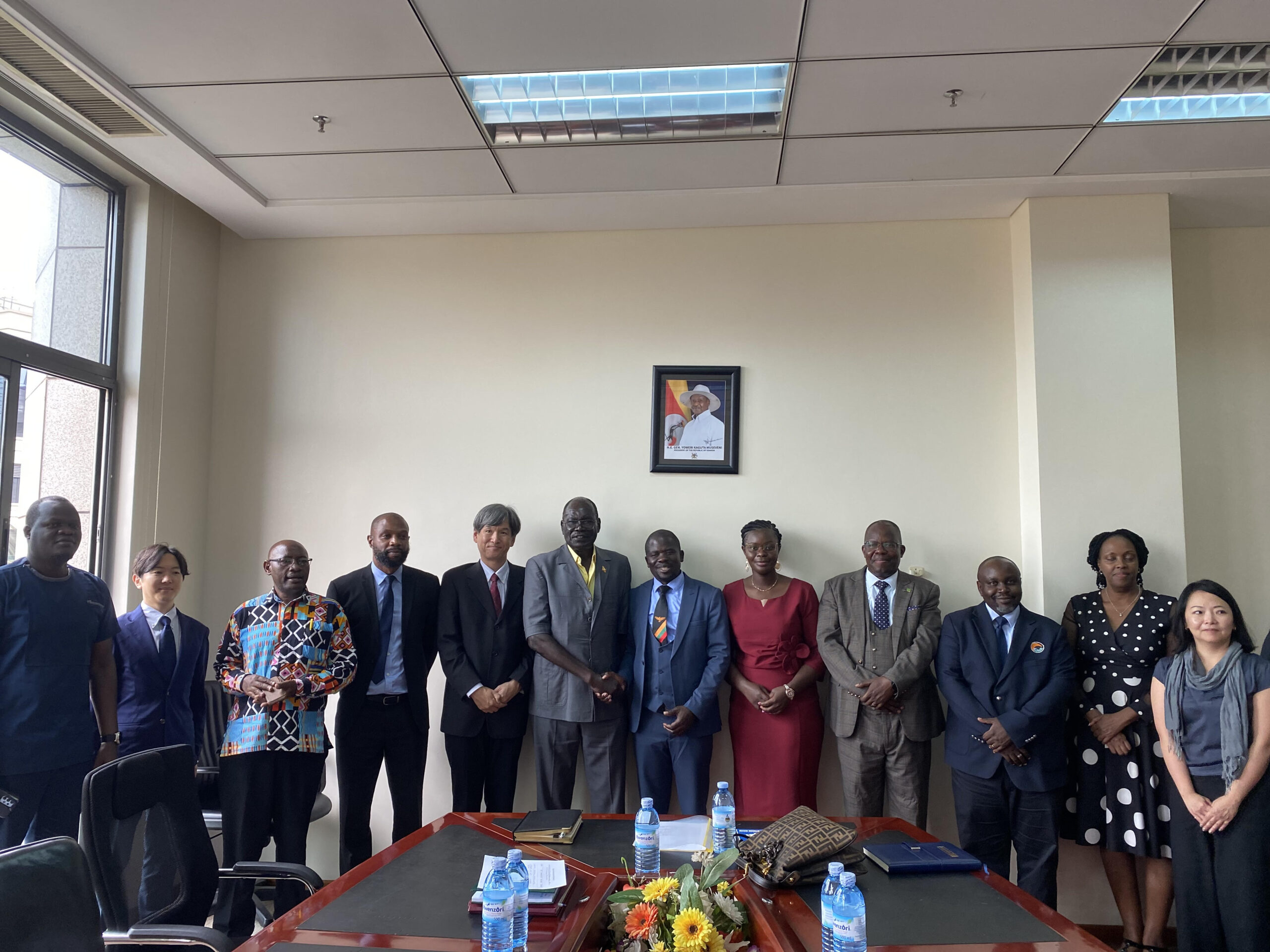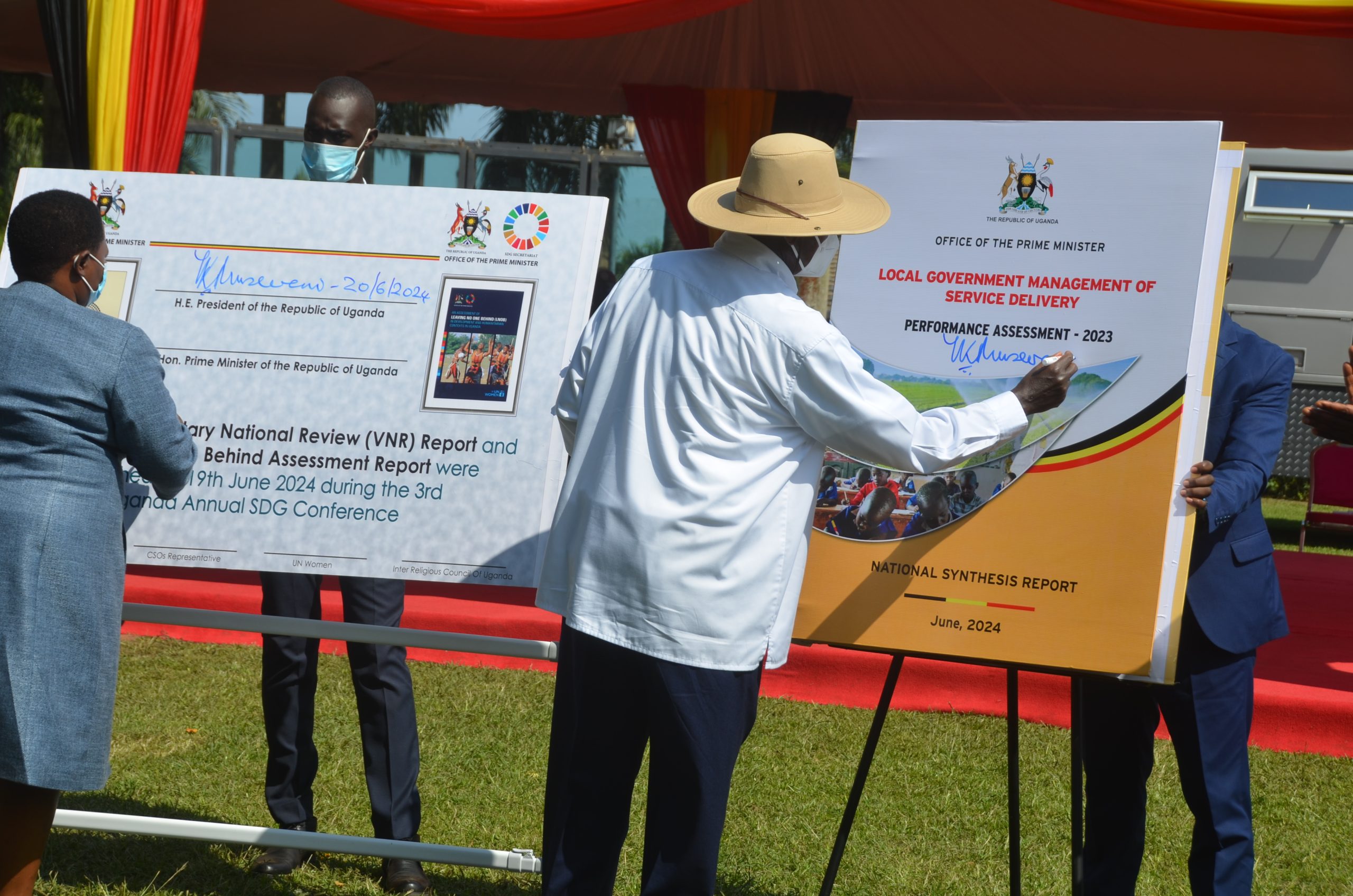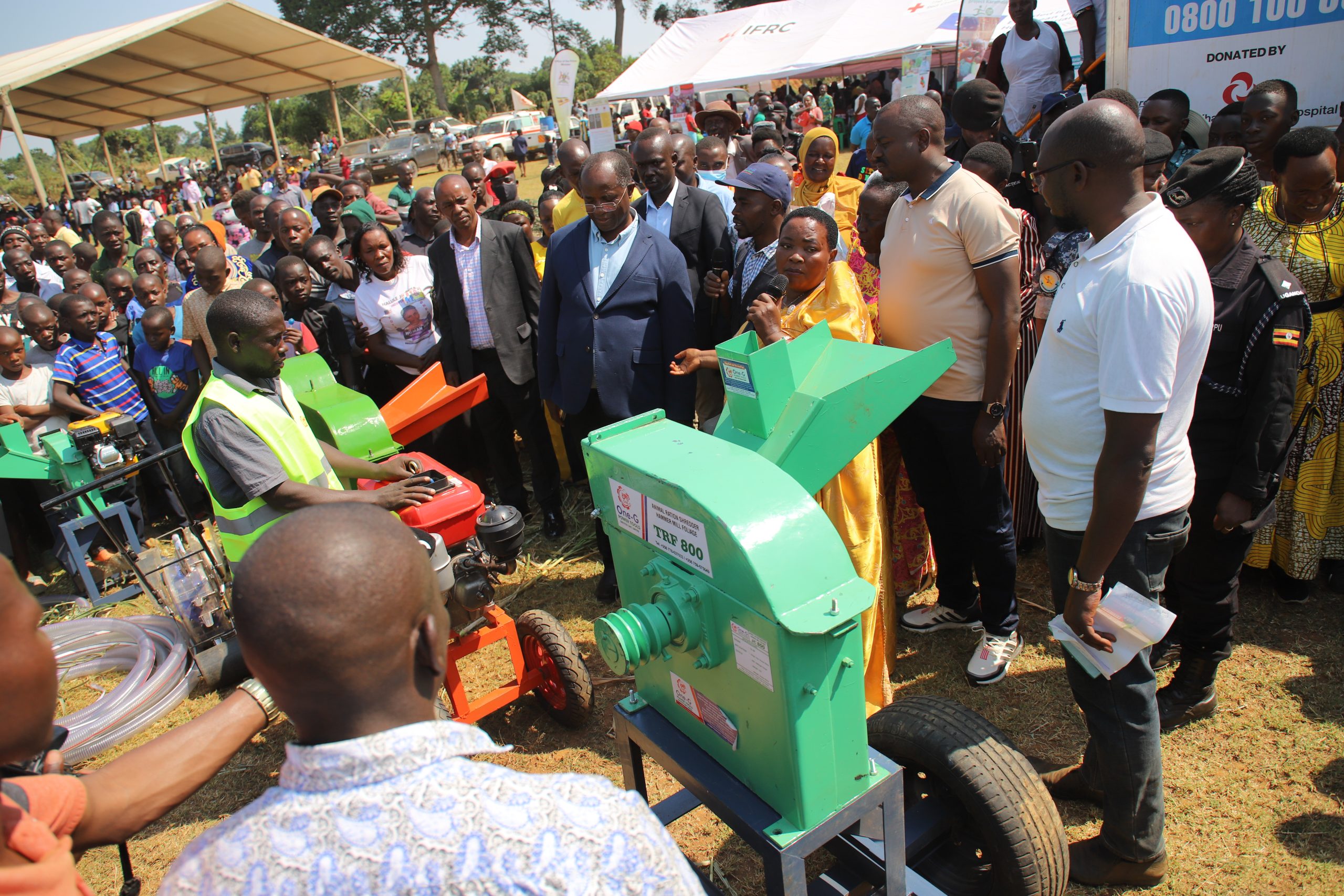By: BERNADETTE NDEMA
Officials from different public and private sectors, on 7th July, 2022 gathered in the Office of the Prime Minister’s conference hall to witness the launch of Phase II of the National Information Platforms for Nutrition.
Prime Minister, Robinah Nabanja, the chief guest at the event, thanked the European Union for supporting the project and re-emphasized the OPM’s commitment to fighting malnutrition.
“I thank the European Union for funding this initiative. As a country, we are indeed grateful and proud to have been selected as one of the beneficiary countries. I want to implore all stakeholders in this room to ensure that we work together to achieve the results prioritized during this phase. My office will continue to coordinate implementation of the project to ensure delivery of results,” Rt. Hon. Nabbanja said.
NIPN Phase II is a follow on project of the initiative’s first phase which will end in December 2022. NIPN II is aimed at providing government with high-quality data to anticipate nutrition-related crises in different parts of the country and ensure that resources are available to address those crises.
Emphasis in Phase I was put on strengthening national capacity to track progress in meeting objectives to monitor nutrition investments and prevent undernutrition. A central data repository and dashboard were some of the key deliverables of the 4year phase. The second phase comes at a point where a national nutrition dashboard is complete, different trainings on nutrition data interventions were held in a bid to build capacity of Ministries, Departments and Agencies.
In her remarks during the launch, Ms. Caroline Adriaensen, Head of Cooperation, Delegation of the European Union to Uganda said, “The EU remains fully committed to supporting the health and nutrition of women of reproductive age and children.”
She added that the EU knew that in the wake of COVID-19, reductions in household incomes increased food insecurity and hunger in Uganda. “One of the benefits of NIPN II is that the Government of Uganda will be strengthening the data systems it needs to identify, monitor and reduce rates of malnutrition in vulnerable areas,”Ms. Adriaensen explained.
UNICEF’s Country Representative, Mr. Mohamed El Munir A. Safieldin, thanked Uganda’s government and the EU for focusing on the issues of nutrition in the country.
“The government’s nutrition action plan estimates that between 2013 and 2025, childhood stunting alone could result in as much as 19 trillion shillings worth of losses in economic productivity. Fortunately, over the past decade, Uganda has made progress in reducing the rates of stunting in children,” Mr. Munir said.
However, he added that due to population growth, the absolute numbers of Ugandan children who were stunted had remained relatively unchanged and may have increased since the COVID pandemic worsened food insecurity for the most vulnerable households.
“I want to express my deep appreciation to the Office of the Prime Minister, which is the NIPN Secretariat and will convene partners across government to implement this platform,”Mr. Munir said.
Although the NIPN’s first phase was mainly implemented at a national/ central level, Phase II is spreading out to 15 districts including; Rukungiri, Ntungamo, Insingiro, Kasese, Kabarole, Namutumba, Bugiri, Napak, Abim, Kabong, Adjumani, Nebbi, Omoro, Kole and Bushenyi. Continuing with the multi-sectoral approach, NIPN Phase II is implemented in partnership with UNICEF and the Uganda Bureau of Statistics, targeting close collaboration with the Uganda Nutrition Action Plan II (UNAP II) implementing government Ministries, Departments and Agencies (MDAs).
These include, the Ministry of Education and Sports, Ministry of Water and Environment, the National Planning Authority, Ministry of Agriculture, Animal Industry and Fisheries, Ministry of Local Government, Ministry of Gender, Labour and Social Development, Ministry of Health and Ministry of Trade, Industries and Cooperatives
NIPN Phase II will be implemented for 48 months with Support amounting US$3,100,794 of which US$2,674,752 is contributed by the EU and US$426,042 by UNICEF. The initiative will contribute to the overall objective of enhancing maternal and child nutrition in line with the commitments and strategic priorities of the EU and Sustainable Development Goals (SDGs), specifically SDG 2.2 “To end all forms of malnutrition by 2030.” It will also contribute to the national nutrition agenda and respective policies in Uganda by serving as an enabler and platform for data and evidence for nutrition policy decisions and programming. ENDS
